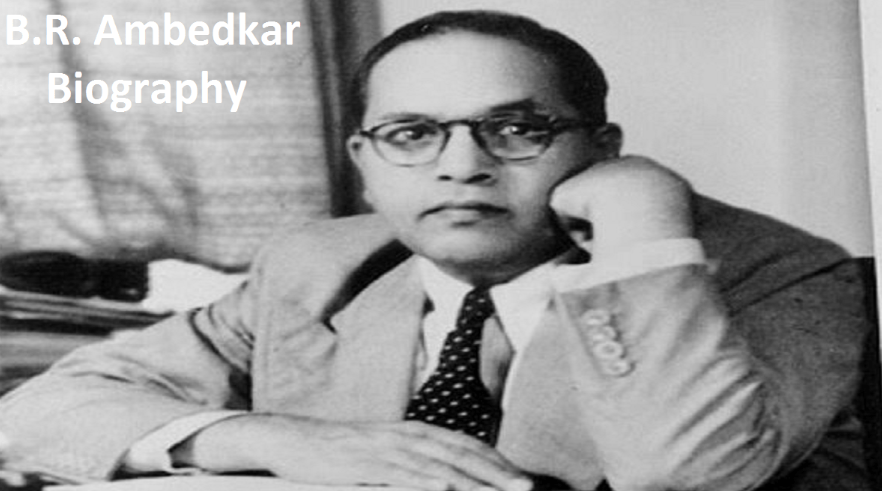Dr. Bhimrao Ramji Ambedkar, affectionately known as Babasaheb, stands as a towering figure in the annals of Indian history. Renowned as the principal architect behind the Indian Constitution, his tireless advocacy for equality and the upliftment of marginalized communities has left an indelible mark on Indian society. Each year, his legacy is celebrated across the country on April 14th, known as Ambedkar Jayanti. As we approach the commemoration of this influential leader’s birth anniversary on April 14, 2024, NEXT IAS offers an insightful exploration into the life and enduring impact of Dr. Ambedkar, featuring his remarkable achievements, enduring legacy, and more.
Biography of DR. B.R. Ambedkar
| Date of Birth | 14 April 1891 |
| Place of Birth | Mhow (now Ambedkar Nagar), Madhya Pradesh |
| Education | University of Mumbai, Columbia University (New York), Gray’s Inn (London), London School of Economics |
| Associations | Independent Labour Party, Scheduled Castes Federation, Republican Party of India |
| Death | 6 December 1956 |
| Nicknames | Babasaheb |
| Epithets | Father of the Indian Constitution, Champion of the Dalits, Modern Manu |
| Achievements | – Chairman of the Drafting Committee. – First Law of Minister of Independent India. – Labor Minister in Viceroy’s Executive Council. |
Education and Early Life of Ambedkar
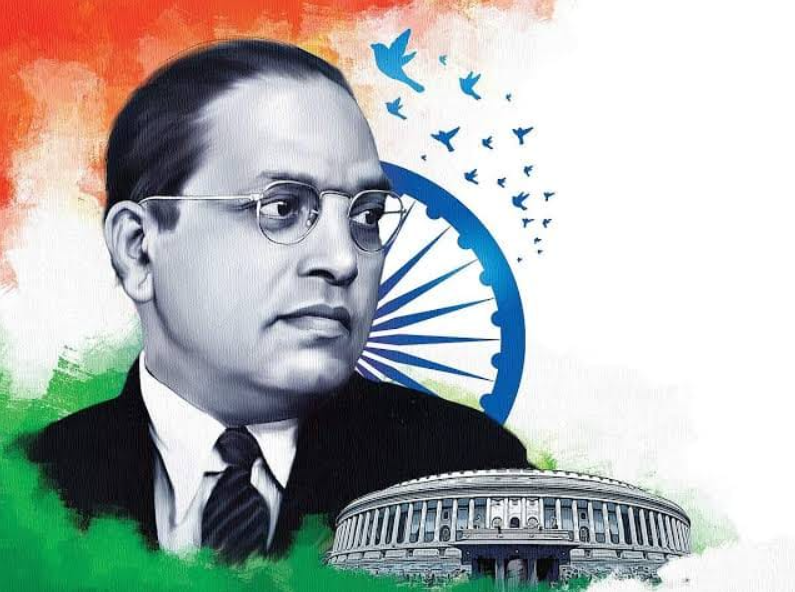
The early years and educational journey of Dr. B.R. Ambedkar set the stage for his eventual role as a leading advocate for social justice and the key architect behind the Indian Constitution.
Born on April 14, 1891, in Mhow, Madhya Pradesh, within the Mahar caste, traditionally viewed as lower-status village servants, Dr. B.R. Ambedkar’s formative years were deeply affected by the stark caste discrimination he endured. The societal exclusion and degradation he experienced from a young age fueled his determination to challenge and dismantle the caste system’s injustices.
Dr. Bhimrao Ambedkar’s educational path commenced at Elphinstone High School in Mumbai, marking him as one of the initial Dalit scholars to attend. Overcoming discrimination with his academic prowess, he progressed to Elphinstone College and later, Columbia University in New York. His tenure at Columbia was pivotal, acquainting him with the thoughts of prominent sociologists and economists, alongside the ideals of liberty, equality, and fraternity. These concepts profoundly influenced his vision for India, laying the groundwork for his future endeavors.
In 1916, Dr. Bhimrao Ramji Ambedkar took his academic pursuits to London, where he furthered his studies at the London School of Economics (LSE) and delved into the study of Law at Gray’s Inn.
B.R. Ambedkar: Political career
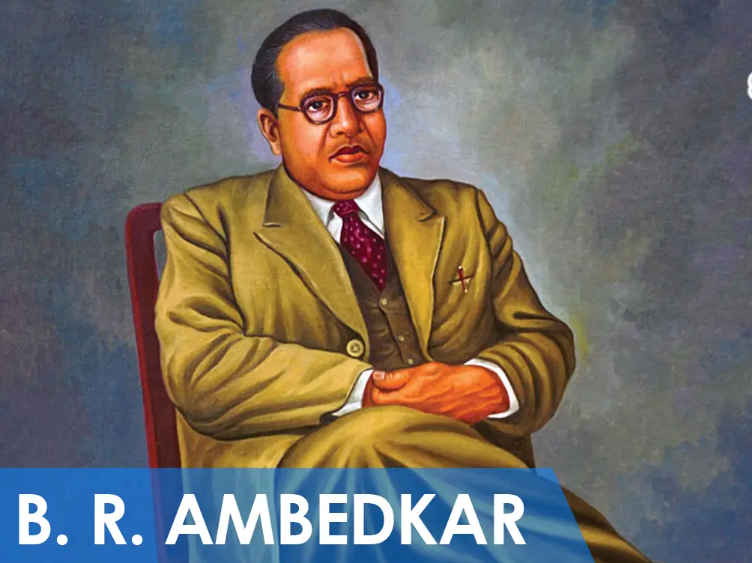
Over the course of many years, Dr. B.R. Ambedkar’s political career encompassed a variety of significant roles, including that of a legislator, the leader of a political party, a key figure in the drafting committee of the Indian Constitution, and the first Law Minister of independent India.
Early Political Engagements
In his inaugural venture into formal politics in 1936, Dr. B.R. Ambedkar established the Independent Labour Party, aiming to voice the concerns of Dalits and the labor force. This party saw a measure of success in the 1937 Bombay Presidency elections, cementing Babasaheb’s status as an influential political figure.
Understanding the critical requirement for a concerted political endeavor to tackle Dalit issues, Dr. B.R. Ambedkar reconstituted the Independent Labor Party into the Scheduled Castes Federation in 1942. This move was geared towards rallying Dalits for political engagement. Despite its focused objectives, the Federation faced challenges in securing substantial electoral victories at the national stage.
Creation of the Indian Constitution
The most lasting contribution of Dr. B.R. Ambedkar to Indian politics is his leadership as the Chairman of the Drafting Committee for the Constituent Assembly, tasked with crafting the Indian Constitution. As its chief architect, Dr. Ambedkar infused the constitution with core values of justice, freedom, equality, and brotherhood. His foresight led to the inclusion of critical measures like the eradication of untouchability and affirmative action for disadvantaged groups, mirroring his aspiration for a India liberated from the scourges of caste bias and social disparity.
Employment as the Labor Minister in the Viceroy’s Executive Council
Between 1942 and 1946, Dr. B.R. Ambedkar held the position of Labour Minister in the Viceroy’s Executive Council. In this role, Dr. Bhimrao was instrumental in initiating and advocating for key labor reforms such as the Factories Act of 1946 and the Trade Unions Act of 1947, among others.
Additionally, he was pivotal in establishing the foundations for worker social security initiatives. He fervently backed the formation of the Employees’ State Insurance (ESI) Corporation and the Employees’ Provident Fund Scheme (EPF), offering medical insurance and retirement benefits, respectively.
The First Law Minister of Independent India
Following India’s independence in 1947, Dr. B.R. Ambedkar assumed the role of the nation’s inaugural Minister of Law and Justice within Jawaharlal Nehru’s government. A hallmark of his tenure was the proposal of the Hindu Code Bill, an ambitious effort to consolidate and modernize Hindu personal law, particularly to grant women equal rights in familial and personal matters. Despite its significance, the Bill did not secure parliamentary approval, prompting Babasaheb to step down from the Nehru Cabinet in 1951.
Subsequent Involvement in Electoral Politics
In the subsequent phase of his political career, Dr. Bhimrao Ramji Ambedkar sought to secure a parliamentary seat in the nascent democracy of independent India through electoral participation. Despite his efforts, this period was marked by limited success, as he encountered a series of electoral setbacks.
During the later stages of his political journey, Dr. Bhimrao Ramji Ambedkar endeavored to win a seat in Parliament within the emerging democratic framework of independent India. His attempts were characterized by active engagement in the electoral process. However, this period did not bring the desired outcomes, with Dr. Ambedkar facing multiple electoral challenges and defeats.
Significant Achievements of Dr. B.R. Ambedkar
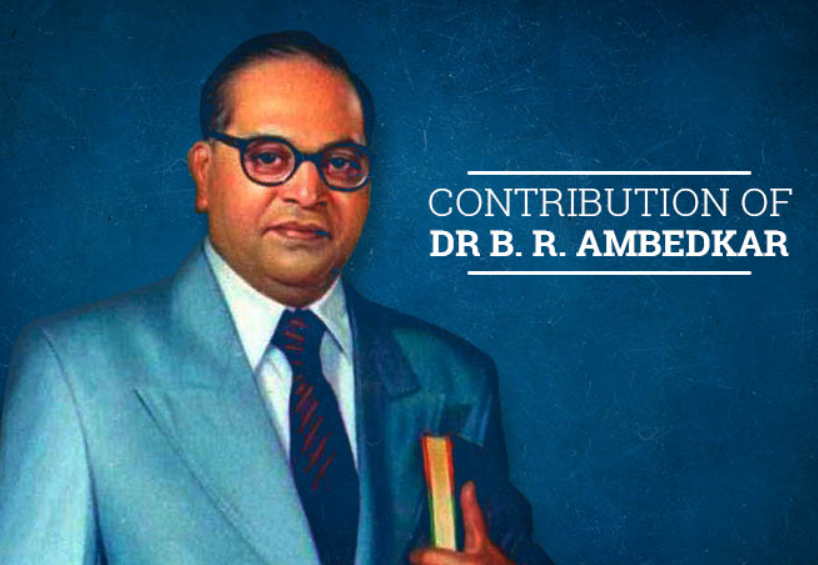
The impact of Dr. B.R. Ambedkar on Indian society is profound and diverse, mirroring his roles as a social reformer, economist, politician, and legal expert. Below are highlights of his significant contributions:
- Crafting the Indian Constitution: One of his most lasting legacies is his pivotal role in drafting the Indian Constitution. Serving as the Chairman of the Drafting Committee, Dr. Ambedkar meticulously designed the constitution to uphold the principles of Justice, Liberty, Equality, and Fraternity, aiming to secure these rights for every Indian citizen.
- Founding Ideas Behind the Reserve Bank of India (RBI): Dr. B.R. Ambedkar was instrumental in the foundational ideas that led to the creation of the Reserve Bank of India (RBI). In 1925, he made a significant presentation to the Royal Commission on Indian Currency and Finance (also known as the Hilton Young Commission), advocating for the need for a Central Banking System in India.
- Advocate for Social Equality: Dr. B.R. Ambedkar dedicated his life to the relentless pursuit of rights for Dalits and other underprivileged communities, championing the cause of social justice and equality in India.
- Advocate for Educational Empowerment: Recognizing education as a catalyst for social change, Babasaheb underscored its significance in elevating the oppressed. He founded educational institutions and motivated the Dalit community to seek higher education, viewing it as a key to overcoming caste and social disparities.
- Advocate for Gender Equality: Dr. Ambedkar stood firmly for the rights of women and aimed to reform discriminatory Hindu personal laws. He proposed the Hindu Code Bill, aiming to ensure women’s equality in inheritance, marital, and divorce rights.
- Advocacy for Workers’ Rights: Long before assuming any government role, Dr. B.R. Ambedkar championed the cause of labor rights and welfare via his Independent Labour Party (ILP). Subsequently, as the Labour Minister in the Viceroy’s Executive Council, he was instrumental in orchestrating significant labor reforms in India.
- Guidance in Politics: Dr. B.R. Ambedkar’s entry into politics also marked his contribution as a political leader.
- Contribution to Literature: Dr. Bhimrao Ramji Ambedkar’s legacy as a writer is marked by his extensive works covering law, economics, religion, and social reform. His influential texts, including “Annihilation of Caste,” “Who Were the Shudras?,” and “The Buddha and His Dhamma,” still resonate with and motivate a global audience.
Dr. B.R. Ambedkar’s Campaign for Dalit Empowerment

Upon his return to India in the early 1920s, after concluding his education overseas, Dr. B.R. Ambedkar was confronted with the pervasive social inequities of Indian society. This experience compelled Bhimrao Ramji to dedicate his life to combating caste discrimination and elevating the status of the disadvantaged.
Babasaheb believed that meaningful change in the social standing of the untouchables could only be achieved through sufficient political representation. Consequently, he started to mobilize the untouchable communities through his newspapers, socio-cultural gatherings, and conferences.
In 1924, Dr. Bhimrao established the Bahishkrit Hitakarini Sabha (Society for the Welfare of the Excluded), with the goal of enhancing educational opportunities for Dalits and advancing their socio-economic conditions. He launched several periodicals, such as “Mook Nayak” (Leader of the Silent), “Bahishkrit Bharat” (Excluded India), and Equality Janta, to articulate the issues and aspirations of the Dalit community.
Babasaheb Ambedkar spearheaded one of his initial significant public endeavors with the Mahad Satyagraha in 1927, focusing on affirming the rights of Dalits to access water from a communal tank in Mahad, Maharashtra. In a similar vein, the Kalaram Temple Movement in 1930 was launched to advocate for Dalits’ right to enter Hindu temples.
Understanding the critical role of legal frameworks in driving social change, Dr. B.R. Ambedkar stood as a voice for the Dalits before the British government. He participated in the Round Table Conferences in London as a delegate for the Dalits, pushing for distinct electorates to guarantee their political representation. Babasaheb’s persistent advocacy led to the Poona Pact of 1932, securing reserved seats for Dalits within the general electoral system.
Embracing Buddhism and Final Years
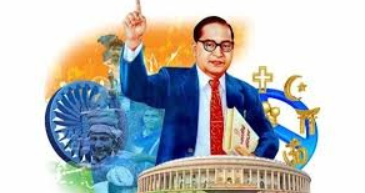
From the onset of his career, Dr. B.R. Ambedkar exhibited a keen interest in Buddhism, delving into multiple philosophies and religious teachings in his pursuit of social justice and equality. In 1935, during a regional conference for the depressed classes in Yeola (Nasik), he made a public declaration for the first time, stating, “I was born in Hinduism, but I will not die as a Hindu.”
On October 14, 1956, in a grand public event in Nagpur, Dr. Bhimrao Ramji Ambedkar formally embraced Buddhism. His conversion transcended a mere personal spiritual journey; it was a deliberate social and political gesture, denouncing the Hindu caste hierarchy. From this point forward, Dr. B.R. Ambedkar dedicated his remaining years to propagating the principles of Buddhism.
Dr. B.R. Ambedkar’s adoption of Buddhism significantly influenced both Indian society and its political landscape. It ignited a widespread movement among Dalits, leading to a large-scale conversion to Buddhism. This phenomenon, known as the Dalit Buddhist movement, persists in the present day.
The Enduring Heritage of Dr. B.R. Ambedkar
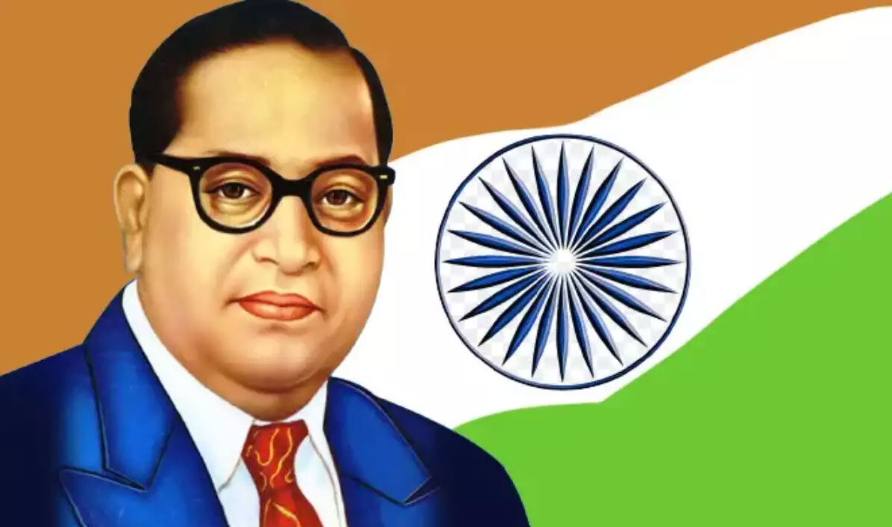
Dr. B.R. Ambedkar’s extensive contributions have profoundly shaped India’s socio-cultural and political frameworks. Today, his enduring influence is celebrated across the country through a range of memorials, educational institutions, and commemorative events. Key representations of his legacy in modern India include:
- Ambedkar Jayanti: Celebrated across India on April 14th, the birth anniversary of Dr. B.R. Ambedkar, known as Ambedkar Jayanti, is a day dedicated to remembering and honoring his contributions and legacy. Nationwide events and commemorations take place to pay tribute to his life and achievements.
- Monuments and Tributes: Across India, public spaces are graced with statues of Dr. Bhimrao Ramji Ambedkar, reflecting his esteemed place in the nation’s heart. Furthermore, a variety of memorials, museums, and libraries have been founded in his honor, serving as repositories of his legacy and ideals.
- Impact on Political Discourse: The thoughts and ideals of Dr. Ambedkar significantly influence contemporary political strategies and beliefs. Numerous political parties, particularly those advocating for the rights of marginalized groups, draw inspiration from Bhimrao Ramji Ambedkar’s legacy. They integrate his philosophies into their platforms and actions, paying tribute to his vision for equality and social justice.
- Affirmative Action and Social Equity: The advocacy of Dr. Bhimrao Ambedkar for social justice and affirmative measures finds its expression in India’s reservation policies, ensuring representation and opportunities for historically marginalized communities.
- Cultural Legacy: The life and achievements of Dr. Ambedkar have sparked a wealth of cultural productions, including literature, art, music, and film. His story has been the subject of countless books, biographies, poems, and theatrical works, enriching the cultural landscape.
- Community Empowerment: The life and teachings of Dr. Ambedkar remain a source of empowerment for Dalits and other marginalized groups in India, fueling their ongoing fight for equality and respect. The Ambedkarite Movement stands out as a significant manifestation of this inspiration, guiding their efforts for social change.
- Promoting Knowledge and Reform: Initiatives to enhance understanding and awareness of Dr. Ambedkar’s contributions and philosophy are continuously underway. Educational institutions and community groups frequently conduct seminars, workshops, and study circles, aiming to spread his teachings and advocate for societal improvement.
- Academic Foundations: In tribute to Babasaheb, numerous educational establishments, including Dr. B.R. Ambedkar University and various colleges, have been founded nationwide, bearing his name and upholding his legacy.
Babasaheb Dr. B.R. Ambedkar, an Indian luminary with a diverse legacy, has left an indelible mark on the country’s socio-political and economic fabric. Rising from the fringes of society to become one of independent India’s most eminent figures, his story remains a beacon of inspiration for successive generations.
